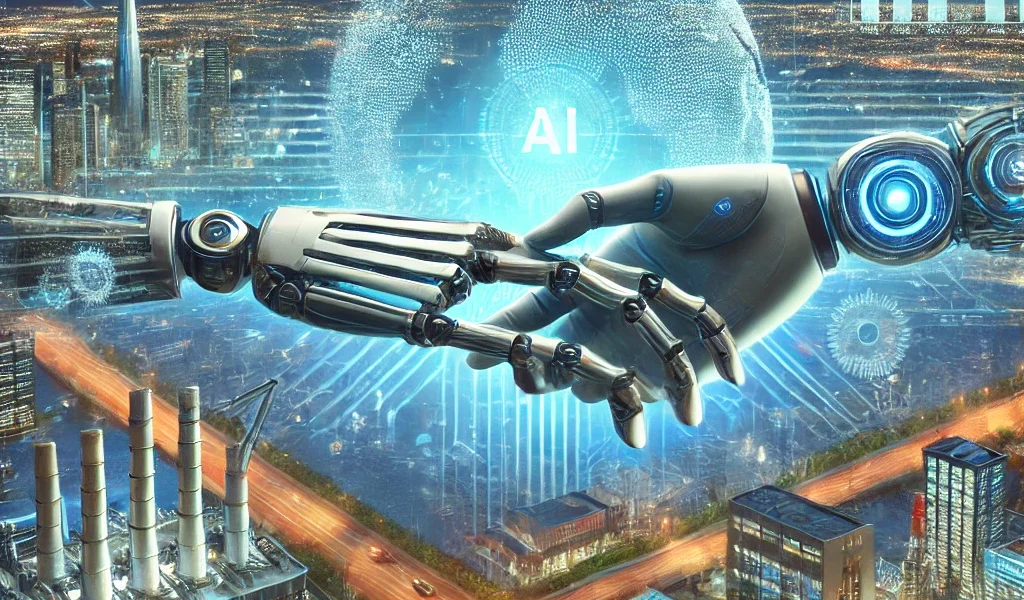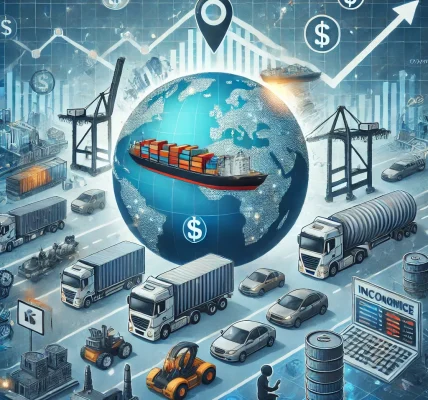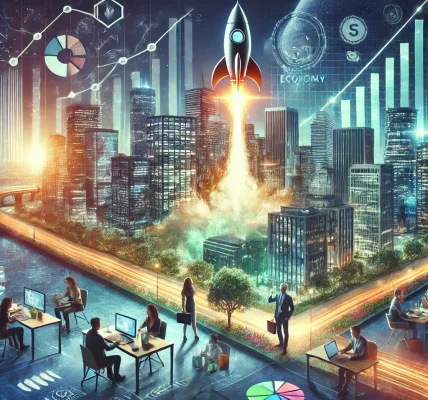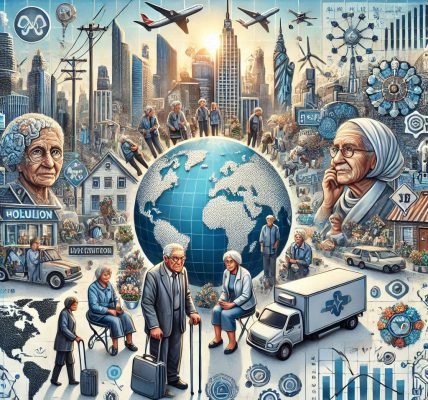Introduction
Artificial intelligence (AI) and automation are transforming industries worldwide, reshaping labor markets, and influencing global economic growth. From manufacturing to finance, AI-driven technologies are increasing efficiency, reducing costs, and revolutionizing business operations. However, their impact raises critical concerns about job displacement, economic inequality, and regulatory challenges. This blog explores how AI and automation are shaping the global economy, the benefits they offer, and the potential risks associated with their widespread adoption.
The Role of AI and Automation in Economic Growth
1. Enhancing Productivity and Efficiency
AI and automation streamline processes across industries, leading to higher productivity and efficiency. Businesses can complete complex tasks faster, reducing operational costs and minimizing human error. Key areas of impact include:
- Manufacturing: Robotics and AI-driven production lines increase output and precision.
- Finance: AI-powered algorithms enhance risk assessment, fraud detection, and automated trading.
- Healthcare: AI assists in diagnostics, personalized treatments, and robotic surgeries.
- Retail and E-commerce: Automated warehouses, chatbots, and AI-based recommendations enhance customer experience.
2. Economic Expansion and Innovation
The integration of AI fosters innovation, leading to the development of new products and services. As businesses adopt AI-driven solutions, they create opportunities for economic expansion through:
- New Business Models: AI-powered platforms like Uber and Airbnb have disrupted traditional industries.
- Data Monetization: Companies leverage AI to analyze vast amounts of data for better decision-making.
- Smart Infrastructure: AI-driven smart cities enhance urban development and energy efficiency.
Job Market Transformation: Opportunities and Challenges
1. Job Creation in Emerging Industries
While AI eliminates some jobs, it also creates new roles in AI development, data analysis, cybersecurity, and machine learning engineering. The demand for AI specialists, software developers, and automation engineers continues to grow.
2. Job Displacement and Workforce Reskilling
The automation of repetitive tasks threatens traditional jobs in manufacturing, customer service, and administrative roles. To mitigate job losses, governments and businesses must invest in reskilling programs, enabling workers to adapt to AI-driven industries.
3. Changing Work Dynamics
AI introduces flexible work arrangements, remote job opportunities, and gig economy growth. Platforms like Upwork and Fiverr allow freelancers to leverage AI-powered tools for digital services, expanding employment options beyond traditional corporate settings.
The Impact on Income Distribution and Economic Inequality
1. Widening Economic Disparities
AI and automation can lead to wealth concentration, where tech-driven corporations and skilled professionals benefit the most. Without proper regulation, economic inequality may rise, disproportionately affecting low-skilled workers.
2. Universal Basic Income (UBI) as a Potential Solution
Some economists propose UBI as a way to support workers affected by automation. By providing a guaranteed income, UBI could help reduce poverty and maintain economic stability.
The Role of Governments and Policy Makers
1. AI Regulations and Ethical Considerations
Governments must implement policies to ensure responsible AI development, addressing concerns such as:
- Bias in AI algorithms affecting hiring, lending, and law enforcement decisions.
- Data privacy and the ethical use of AI in surveillance and decision-making.
- AI governance frameworks to regulate autonomous systems and prevent misuse.
2. Investment in AI Education and Infrastructure
To maintain a competitive edge in the global AI race, countries must invest in:
- STEM education: Preparing the next generation for AI-related careers.
- AI research funding: Encouraging technological advancements and innovation.
- Public-private partnerships: Collaborating with tech companies to integrate AI responsibly.
The Future of AI in the Global Economy
1. The Evolution of AI-Powered Industries
As AI technology advances, industries such as healthcare, transportation, and finance will undergo radical transformations. Self-driving cars, AI-powered medical diagnoses, and automated financial services will become more widespread.
2. AI and Sustainable Development
AI can contribute to sustainability by optimizing resource management, reducing energy consumption, and improving environmental monitoring. Smart grids, AI-driven agriculture, and climate change modeling are examples of AI’s role in a sustainable future.
3. Collaboration Between Humans and AI
The future of work will likely involve human-AI collaboration rather than complete automation. Augmented intelligence, where AI supports rather than replaces human decision-making, will define the next phase of economic progress.
Conclusion
AI and automation are reshaping the global economy, bringing both opportunities and challenges. While they enhance productivity, innovation, and job creation, they also raise concerns about job displacement, inequality, and ethical risks. Governments, businesses, and individuals must work together to harness AI’s potential while mitigating its negative effects. By investing in education, implementing fair policies, and fostering human-AI collaboration, we can ensure an inclusive and sustainable economic future in the AI era.




